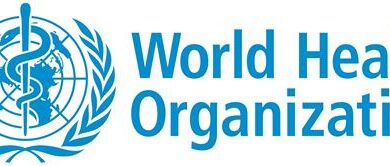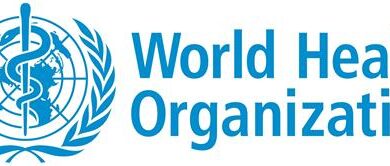LBSSC, Bloom Public Health, Others Unveil Pharmaceutical Manufacturing Blueprint

*Calls for support from all Nigerians
To increase the number of Investors in the pharmaceutical manufacturing space, improve productivity, enhance the competitiveness of the economy and boost local manufacture of drugs as well as activate the inherent potentials in the Pharmaceutical Manufacturing sector, stakeholders from various sectors of the nation’s economy have come together to launch a Pharmaceutical Manufacturing Blueprint.
Speaking at the launch which took place at the Lagos Business School, Ajah, Lagos tagged “The Pharmaceutical Manufacturing Value Chain Mapping (PMVCM),” Chief Executive Officer, Bloom Public Health, Professor Chimezie Anyakora, listed the core benefits which the implementation of the study would bring to the Nigerian pharmaceutical space.
Prof Anyakora who was high elated by the outpouring of commendations and pledges of support from stakeholders in the pharmaceutical and health sectors said one of the primary objectives of the study is to optimise the potentials of Nigeria in terms of capacity to access those basic requirements that would make its pharmaceutical landscape independent of foreign influence.
He called on all hands to be on deck to ensure the success of the project just as he solicited the support of all Nigerians.
He also stated that putting Nigeria at an advantaged position as far as pharmaceutical manufacturing is concerned remains a lofty goal of the study. To achieve this goal, he highlighted the roles government, manufacturers, investors and regulators would have to play.
Speaking via Zoom, President of the Nigerian Association of Pharmacists and Pharmaceutical Scientists in the Americas (NAPPSSA), Dr Anthony Ikeme, bemoaned Nigeria’s perennial dependence on foreign countries for its pharmaceutical raw materials, adding that such a scenario makes the country powerless in the scheme of things.
He lamented the sad reality of India and China controlling the Nigerian pharmaceutical market.
As a way forward out of this precarious situation, he said: “We need a deliberate plan and strategy to mitigate against the risks of relying on other countries for APIs and expertise”. With a strong base of community pharmacists in the United States, Ikeme believes that the country possesses the necessary expertise to catalyse the process of establishing itself as a major hub for pharmaceutical manufacturing in Africa.
On his part, the Director-General of the National Institute for Pharmaceutical Research and Development (NIPRD), Dr Obi Adigwe, observed that despite the over 50 billion dollars worth of the pharmaceutical manufacturing market in Africa, it is difficult to point to any African country that can be referred to as a hub in the continent.
He added that the Pharmaceutical Manufacturing Value Chain Mapping by Bloom Public Health in conjunction with the Lagos Business School Sustainability Centre (LBSSC), when fully implemented, would become the most significant thing to happen to the Pharmacy sector in Africa.
Also speaking, the Chief Executive Officer, Emzor, Dr Stella Okoli, lauded the initiative by Bloom Public Health and the Lagos Business School.

She said the study was timely and described it as a welcome development that would augur well and change the narratives in the Nigerian pharmaceutical manufacturing sector and pledged her full support.
Dr Ukamaka Okafor who represented the registrar of the Pharmacists Council of Nigeria (PCN), said there cannot be any meaningful development without research and appealed that consideration should be given to local production in the project.
She reiterated PCN’s readiness to always support developmental projects such as the PMVCM.
Executive Secretary of PMG-MAN, Pharm. Frank Muoneme, while pledging his organisation’s commitment towards ensuring that Nigeria attains medicine security, stated that untapped potentials abound in the country’s pharmaceutical sector.
He lauded Bloom Public Health and the LBS for putting up the PMVCM which he said is aimed at proffering solutions to the local manufacturing value chain.
Those who promised to support and help in raising funds for the successful execution of the project include, Dr Njide Ndili, country director of PharmAccess and Kate Isa, chairman Katchey Laboratories Limited.
Dr Franklin Ngwu, Faculty, Strategy, Corporate Governance and Risk Management of the Lagos Business School, earlier in his opening remarks thanked the stakeholders for the laudable initiative and expressed optimism that “this will lead to an impactful study with actions points to move our country’s health sector and economy forward.
“We are counting on your support as we commence the study.
While giving insight on why the study is important, Dr Ngwu said, “The pharmaceutical industry is the bedrock of all health systems around the world as it is responsible for producing all the treatment options in various forms to essentially all disease states.
“It is no wonder that with the recent COVID-19 pandemic, the pharma industry was placed under pressure to find a lasting solution to curb the spread of the virus. The need for, an immediate supply of personal protective equipment (PPE) also fell on the shoulders of the pharma industry. It is therefore an industry that is dynamic; a key asset to the global economy with endless opportunities and possibilities for investment.
“With a population of 201 million (2019, World Bank), Nigeria is the largest and fastest-growing economy in Africa with the highest disease burden in the Sub-Saharan region. The Nigerian pharmaceutical sector keeps growing at a rate of 9% each year and is expected to reach $4 billion by 2026 (McKinsey). There are over 100 pharmaceutical companies alone; some of them have a very advanced current GMP compliance, which grants them the liberty to export their products as well as be the first point of call for donor investment in medicines and medical devices. This growth makes it possible for Nigeria to provide and control over 60% of health products consumed in the Economic Community of West African States (ECOWAS)region.
“The pharmaceutical manufacturing ecosystem in Nigeria is currently constrained by a vicious cycle of poor demand and poor supply, which creates an obstacle to boosting the local manufacture of pharmaceutical products. Demand is fragmented with limited pooling and significant out of pocket expenses while supply is limited in investments and government funding. Furthermore, Nigeria stands at the epicentre of influencing factors; it is a growing economy with a huge population whilst being a vastly underdeveloped market with counterfeit drugs in circulation. Its health sector is plagued with poor standards, poor funding and disruptions in the supply chain that has led to a huge loss of value for an otherwise lucrative sector of the economy.
The pharmaceutical sector will not grow without the support and a viable sustainability plan. There is a need for commitment and adequate follow-through. Investors are essential in the pharmaceutical manufacturing space to improve productivity, increase the competitiveness of the economy and boost local manufacture of drugs.
“Value chain mapping acts as a guide for the pharma-manufacturing sector. It creates a platform for communication with many stakeholder groups and systematically assesses impacts throughout the value chain. This uncovers risks or opportunities not previously considered and identifies valuable metrics, opportunities that would help the sector better manage its sustainability impacts.”
He said the mapping study will identify the following:
- all the services and products required in the pharmaceutical manufacturing ecosystem,
- the current situation in Nigeria and the market size of each segment.
- the main activities associated with local pharmaceutical manufacture thus pin-pointing performance improvement opportunities.




